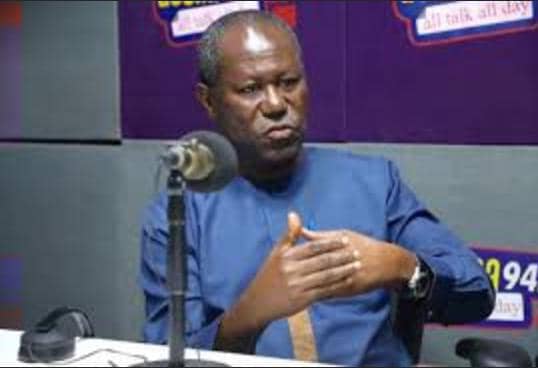Joseph Boahen Aidoo
The Chief Executive of Ghana Cocoa Board (COCOBOD), Joseph Boahen Aidoo has urged the Project Implementation team of the Ghana Tree crop Diversification Project to utilise local expertise in the implementation of its project to help sustain the cocoa industry.
The Tree Crop Diversification Project is an initiative of the government of Ghana and the World Bank and is set to be implemented over the next six years.
With a total investment of $227.5 million, with 27.5 being a counterpart contribution of COCOBOD, the project which has COCOBOD and the Tree Crop Development Authority as joint implementing agents, is expected to mark a significant step in Ghana’s agricultural landscape to reduce the country’s over-reliance on cocoa.
The project is also aimed at supporting the transformation of Ghana’s cocoa sector through productivity improvement, climate resilience as well as increasing the production of cashew, coconut, and rubber.
The Chief Executive who made the call during a meeting with the project implementation team at the Cocoa House in Accra emphasised the need for them to use local experts who are not only knowledgeable in tree crops but also have significant experience to support them with their skills to help sustain the cocoa industry.
The Project Implementation team among other discussions also gave an update on the progress of work so far on the project to the management of COCOBOD.
Mr. Boahen Aidoo also called for stakeholder collaboration to tackle the challenges in the industry especially diseases affecting cocoa production such as the Cocoa Swollen Shoot Virus Disease (CSSVD) while expressing COCOBOD’s commitment to support the implementation of the projects.
Project Coordinator of the Ghana Tree crop Diversification Project, Mr. Wahab Suleman who made a presentation on various components of the project also stressed the need to strengthen COCOBOD’s capacity to enable them to implement policies that promote sustainable development across the cocoa sector.
He said strengthening COCOBOD, will not only help equip stakeholders to be able to contribute to the growth of the cocoa industry but also transition COCOBOD to operate a paperless system while implementing targeted training programmes for staff as well.
According to the Project Coordinator, farmers will also be introduced to innovative agricultural practices, rehabilitate farms affected by the Cocoa Swollen Shoot Virus disease (CSSVD) and also give priority to improving post-harvest management which will add value to cocoa products and enhance market access.
Another significant highlight from the meeting was also the announcement of the establishment of a new, fully equipped laboratory for the Cocoa Research Institute of Ghana (CRIG) facility to enhance research capabilities, particularly diseases affecting cocoa crops.
Three cocoa districts, Essam and Adabokrom in the Western North Region, and Asamankese in the Eastern Region, selected for their potential impact, were identified as beneficiaries of the project.
By Ebenezer K. Amponsah


